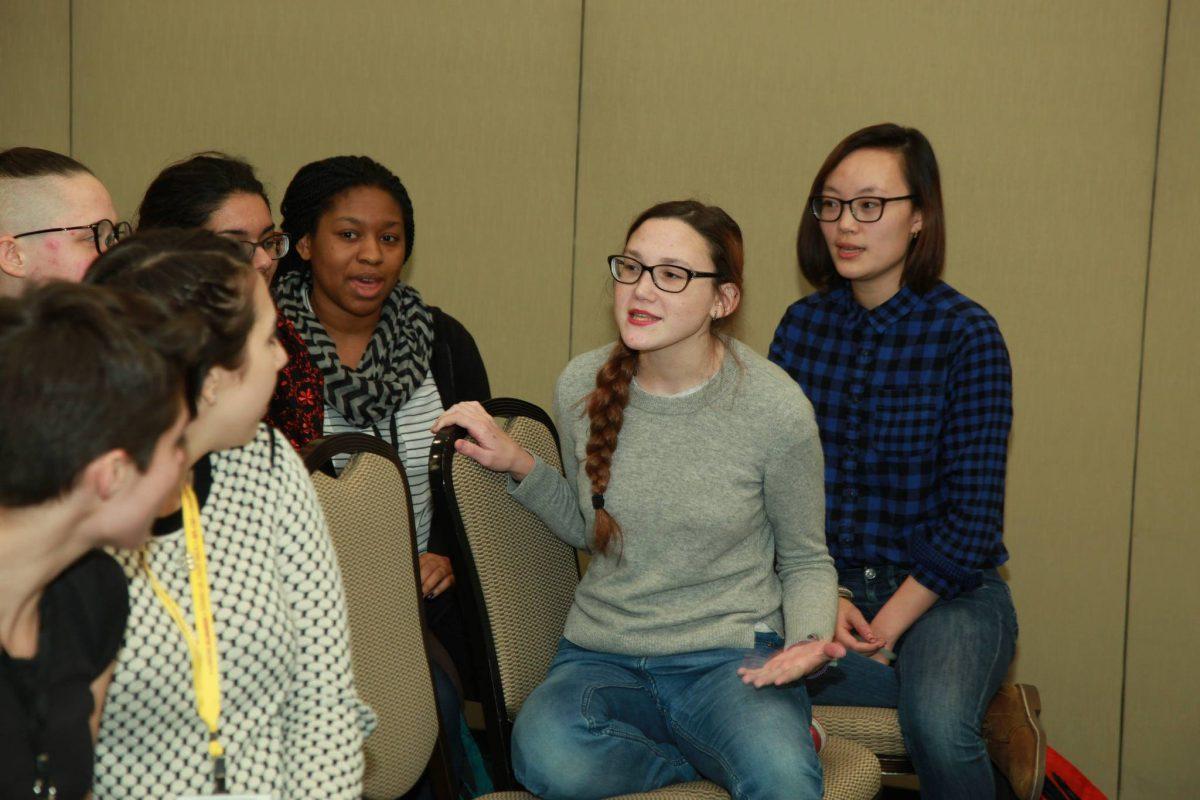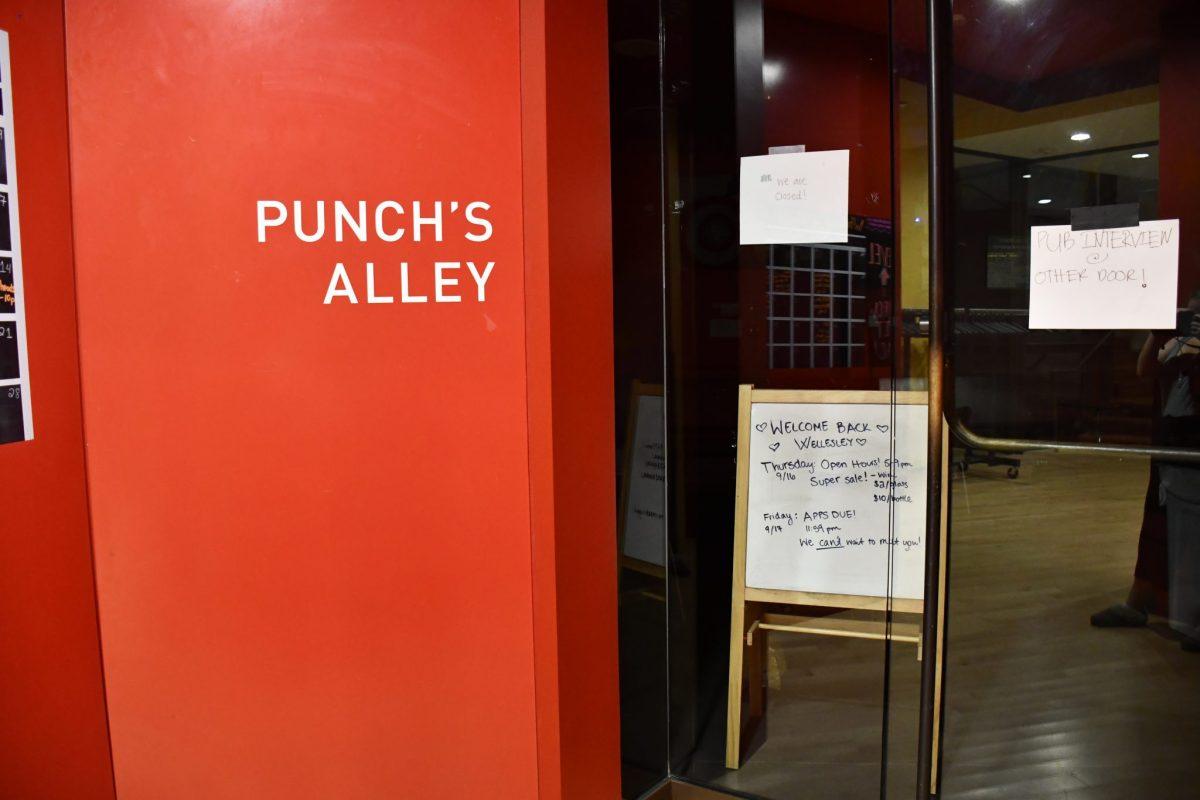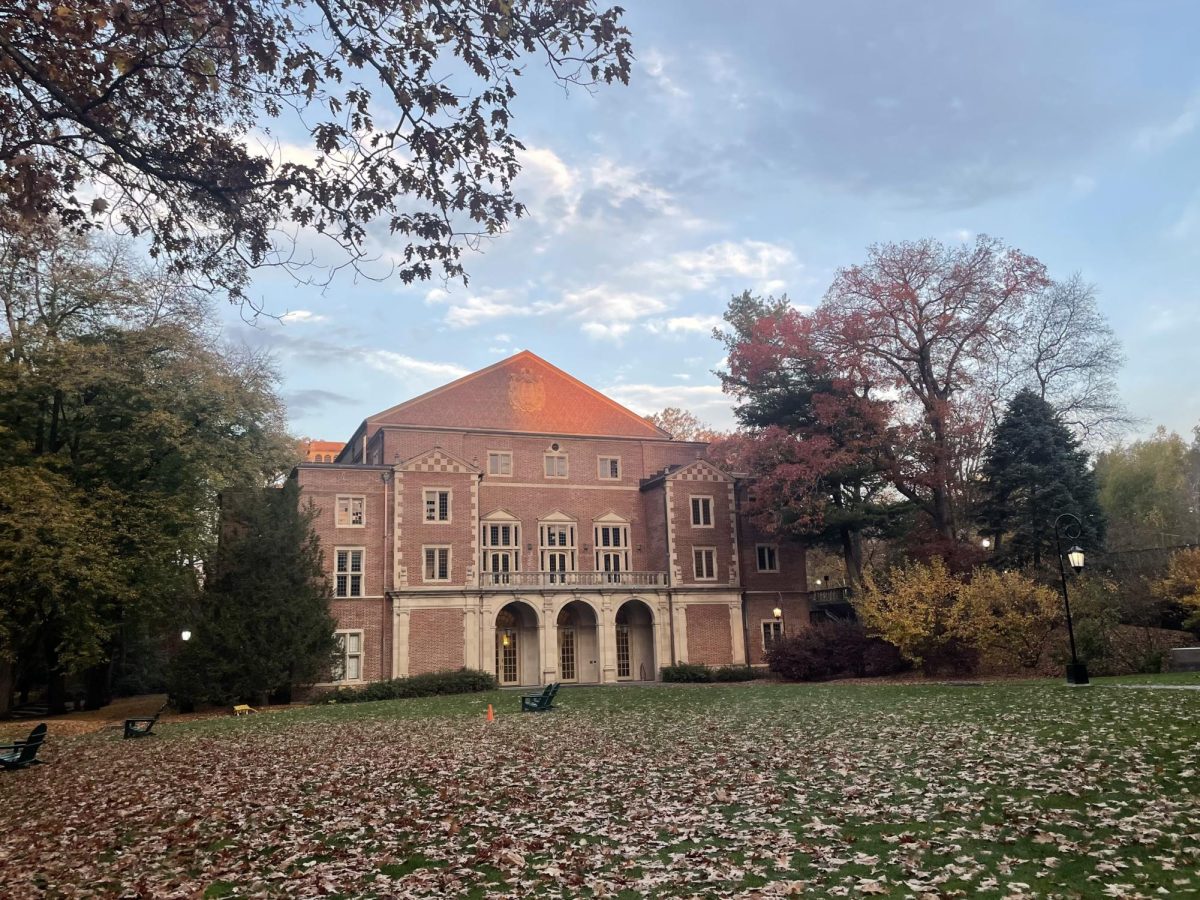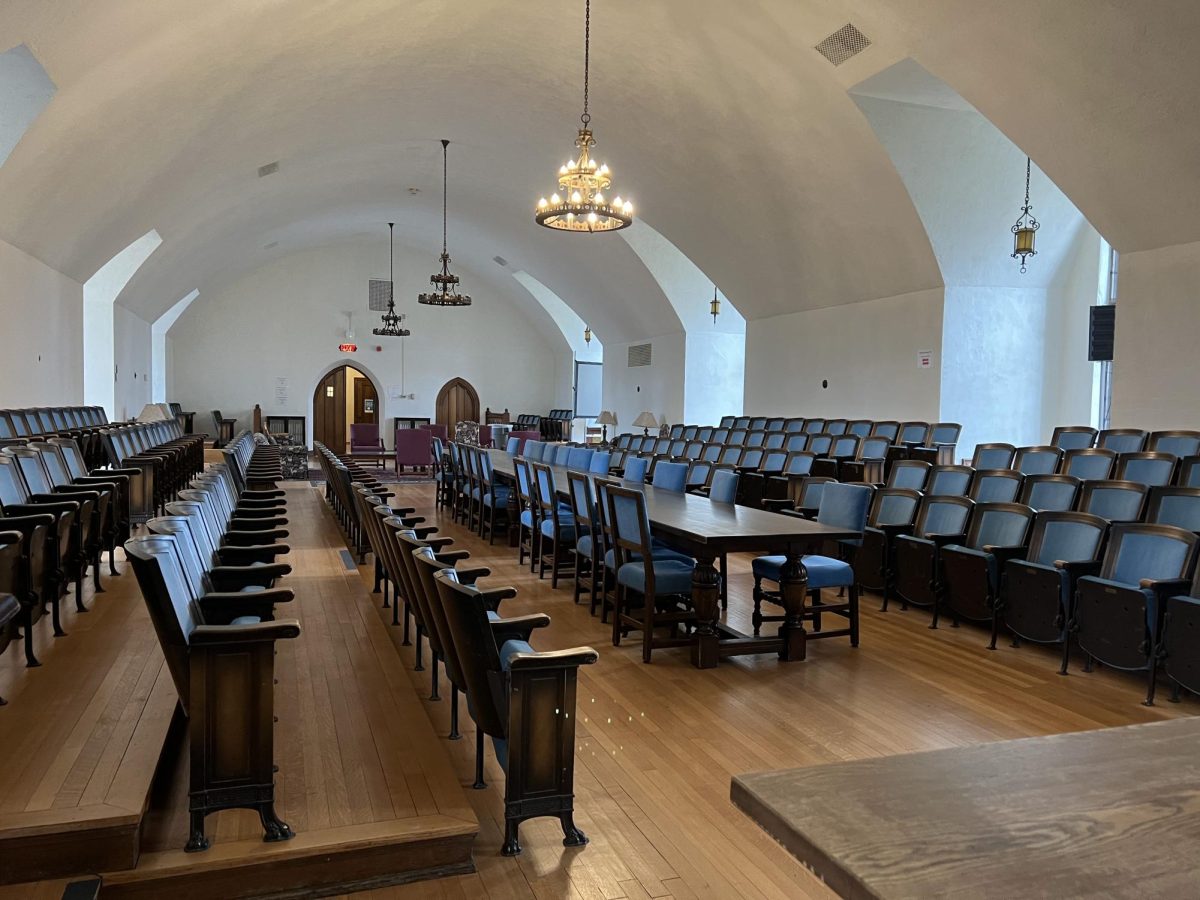Issues of class and financial accessibility are becoming increasingly visible on Wellesley’s campus. The Student Labor Action Project (SLAP) called students to participate in essential conversations, providing a forum in which they can talk about their own experiences and possibilities for future changes.
Many students drawn to SLAP’s work on campus are interested in economic justice.
“I joined SLAP because, as a first [generation] student from a very poor background, I felt this incredible wall of culture shock when I first came to Wellesley,” Aubrey Simonson ’19 said.
There are other organizations on campus, such as Questbridge and the First Generation Network, that cater to students from this demographic and hope to help them adjust to life at Wellesley. However, when Simonson came to Wellesley she immediately found a job in the Ville, which conflicted with meetings for these groups.
“So instead, I found a sense of community with other people who wanted to change the way things are, and make Wellesley a more accessible and comfortable place for people like me” Simonson continued. Other students cited similar reasons for involvement with SLAP, including a desire to bring the financial accessibility of Wellesley to the forefront of the conversation.
“I became a part of SLAP because I noticed the same issues in this country that we usually talk so extensively about back home in Chile, except nobody was talking about them. As somebody who’s been involved in the discussion about class issues and their intersection with education since I was about 10, this lack of discussion shocked me,” Daniela Kreimerman Arroyo ’19 said.
SLAP is currently holding a series of “Table Talks” to facilitate conversation. The events, which take place over dinner in the Lulu Chow Wang Campus Center, are advertised with questions such as “How has Wellesley been financially inaccessible to you?”, “How has class affected your experience here?” and “How can we change that?”.
“We want to know what the concerns of our constituency are before we move forward on another campaign” Simonson said.
“I was struck by just how many people had struggled with these issues. I was also struck by how little anyone had talked about them before our Table Talks conversation. These are conversations that need to keep happening in safe spaces and among students,” said Savannah Hauge ’16, one of the cofounders of the Wellesley chapter of SLAP.
These Table Talks are an opportunity to openly discuss class and money, which can often be taboo topics of conversation. Simonson mentioned that, in her experience, students seem glad to have this space to talk.
“From what I’ve seen so far, wealthy students tend to feel guilty and want to know how to help and be respectful of their friends, but don’t know an appropriate way to talk about it” Simonson ’19 said.
She continued, “And I think a lot of students from lower socio-economic backgrounds can feel pretty alone here. Even if you have other poor students around you, it’s hard to know, and it’s hard to ever talk about it, because of that taboo. But I think once you give people a space, and you tell them that it’s appropriate to complain there, people can be very willing to open up, and they tend to have a lot to say.”
Discussion on financial accessibility can extend to all aspects of life at Wellesley College. Weekend trips on the Peter Pan bus into Boston, a common activity among students, are receiving a critical look from students concerned with equity.
“[…]A lot of students on campus seem unaware that the idea of going out to Boston for expensive meals for fun isn’t accessible to a lot of students,” Kreimerman Arroyo said. Through the Peter Pan, the most accessible route, a round trip to Boston costs $6 on weekends.
Members of SLAP are applying this line of thinking to the rest of the culture of Wellesley College life as well.
“The issues for low income student and student workers that come up most frequently are the lack of guarantees of a job for students on work-study, worries about tuition going up and financial aid generally being stressful to deal with when it fluctuates year to year,” Kreimerman Arroyo said. She additionally pointed out that the cost of textbooks and other various incidental costs were also causes for concern.
“I was surprised and worried when I heard from some people that they’ll sometimes base their academic decisions on the cost of materials for a given class” she said. She and other members of SLAP expressed that, at Table Talks, one of the most frequently discussed problems was job inaccessibility.
“Many people talked about coming to Wellesley with Federal Work Study as part of their financial aid package, and then struggling to find jobs on campus, or having to go into the Ville to find work. There was a general consensus that if it’s part of the financial aid package, then a job should be guaranteed when you arrive,” Hauge said.
In the past, SLAP has utilized a variety of methods to achieve its goals, including fighting for compensation for Resident Assistants (RAs) and House Presidents (HPs) earlier this year.
“[…]If these students are unpaid, that means that students who need to work to help put themselves through school may find it financially impossible to be [Residential] Life leaders, presidents of [organizations] or members of Student Government. That is a real loss for the people who might have been leaders but couldn’t, and it’s also a loss for the community,” Hauge said.
“For SLAP, the campaign meant mobilizing all of our members, getting the word out to as many people as we could through as many mediums as we could. In the end, it came down to personal connections between students showing the power that we have as a collective, and pressuring the administration” Kreimerman Arroyo said. Some SLAP members attended the Jobs With Justice National Conference this year, where they were able to learn about students at other institutions working towards similar goals.
“In particular, UMass-Amherst successfully unionizing student workers gave me a lot of hope for being able to achieve something similar at Wellesley” Kreimerman Arroyo said, expressing a possible future goal for SLAP.
Ultimately, SLAP is using these Table Talks to determine how to focus its future work.
“ Our campaign right now is to listen to the needs of the community and help connect people with similar stories, with similar experiences. Whatever we do next will be grounded in those stories,” Hauge said.
Photo courtesy of Wellesley College Student Action Labor Project






